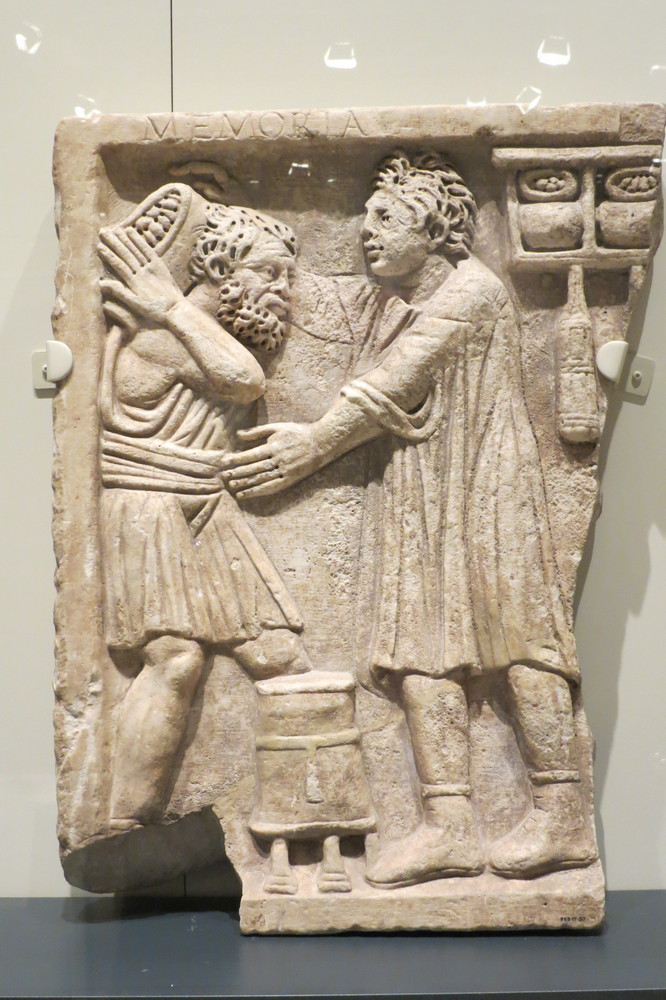TBM 22: Why I Don’t Endorse "A Course In Miracles"
In the past few days, I’ve been busily researching the well-known text called A Course in Miracles (Foundation for Inner Peace, Publisher. A Course in Miracles: Combined Volume. 2nd ed. Mill Valley, CA: Foundation for Inner Peace, 1992.).
I purchased this book at Chapters a few years ago. I’m not sure exactly when I bought it. It was probably in 2004 or 2005. In more recent years, I’ve made a habit of noting the date of purchase on the title page of my new acquisitions, and there’s no purchase note in my copy of ACIM, as it’s commonly known. But I picked up a copy when I saw it at the bookstore because I like to have primary sources on my bookshelves — books written by mystics rather than books written about mystics. I like to read for myself what famous mystics and channellers of the past have written in their own words.
You can tell a lot about a person’s internal brain architecture by reading what they’ve written or what they’ve “transcribed” in a mystical state.
Although no author is listed on the title page of ACIM, it was written between 1965 and 1972 by a New York professor of medical psychology named Helen Schucman. She was aided in this process by her colleague William Thetford, who was also a professor of psychology. (You can read more about it by googling ACIM, Helen Schucman, and William Thetford.)
Schucman was 56 years old when she went through a four-month period of “unusually vivid dream sequences” and “unusual waking experiences.” She gradually began to discern an inner character, a voice who spoke to her and identified himself as Jesus. At first she heard this voice only in her dreams. One day, however, she was sitting in her home when she heard the same voice say to her while she was awake, “This is a course in miracles. Please take notes.”
So she took notes. Lots and lots of notes. She used shorthand to write down what the inner voice was dictating, and her colleague Bill Thetford transcribed the notes onto a typewriter as she read them aloud. Apparently she at times needed a lot of reassurance from Thetford to keep going with this process. Thetford eventually edited the material with the help of a third clinical psychologist, Kenneth Wapnick.
I have a lot of concerns about this material. I have concerns about the state of Schucman’s mental function when she was hearing the inner voice. I have concerns about the motives of Bill Thetford, who coaxed her into continuing to “channel” even when she repeatedly expressed her uncertainty. (As a clinical psychologist, he ought to have known better.) I have concerns about the extent to which other people — including Thetford and Wapnick — oversaw and edited the raw material and helped popularize it through a Foundation created on the other side of the country. I have concerns about the report given by Benedict Groeschel, a Roman Catholic priest and psychologist, who knew Schucman well. Groeschel said that in the last two years of her life Schucman was suffering from a severe psychotic depression. (She died in 1981). If she were writing this material today, I would want to see her current brain scans and I would want to investigate through conventional medical means the possibility that at age 56 Helen Schucman was showing early signs of a dementia with dissociative features.
If you open up any page of A Course in Miracles, what you’ll find is stream of consciousness poetry that resonates with the words and the imagery of ancient mystical texts. It is apophatic mysticism in one of the purest forms I’ve ever seen — a sort of modern day Gnostic Docetism.
Here is an example (one of many, many examples) of the Docetic/Gnostic content of ACIM: “It should especially be noted God has only one Son. If all His creations are His Sons, every one must be an integral part of the whole Sonship. The Sonship in its Oneness transcends the sum of its parts. However, this is obscured as long as any of its parts is missing. That is why the conflict cannot ultimately be resolved until all the parts of the Sonship have returned. Only then can the meaning of wholeness in the true sense be understood. Any part of the Sonship can believe in error or incompleteness if he so chooses. However, if he does so, he is believing in the existence of nothingness. The correction of this error is the Atonement (Chapter 2, Section VII, para. 6).”
Sounds very lofty, very wise, very ethereal, eh?
Small paragraphs taken out of context in ACIM sound this way much of the time, which is probably why the text has been so popular with spiritual seekers who are fed up with traditional religious teachings. The book seems to have so many helpful insights! The problem comes when you try to paste all the paragraphs together. When you paste them together, you don’t have a coherent body of thought with a logical structure and a strong foundation in science. What you have is a circular stream of cliches, cliches that were robbed from other writers (albeit unwittingly) and pasted together in a hamster wheel of Wisdom (“Sophia” in ancient Greek).
A Course in Miracles will take you round and round in circles, but it won’t help you move forward along the Spiral Path because it’s not grounded in reality.
The “Workbook for Students,” which follows 666 pages of “revelation,” contains 365 lessons for spiritual students. Three hundred and sixty-five lessons! (Does anyone need that many?) In my opinion this isn’t a one-year course in miracles — it’s a one-year course in how to become dissociated from your own free will, your own thoughts and emotions, and your own soul’s inner wisdom.
I mean, come on, if you tell your biological brain for a whole year that “nothing I see in this room means anything” (Lesson #1), what do expect your biological brain to do with that? If you tell yourself for a whole year that “This table does not mean anything. This chair does not mean anything. This hand does not mean anything. This foot does not mean anything. This pen does not mean anything (page 3 of Part II),” what do you honestly think your brain is going to do? Your brain — whose job it is to follow the instructions you give it — is going to stop assigning meaning to anything.
Just as you’ve told it to do.
I don’t know about you, but I see one of the greatest causes of suffering in this world as people having too little meaning in their lives, not too much.
When I look at a chair, I see lots of meaning. In the chair I see chemistry and physics at work. I see God the Mother and God the Father sharing baryonic matter with their children who are incarnated here on Planet Earth — children who need all the help they can get! I see an important household item that adds to my sense of comfort and household beauty. I see a medical device, if you will, that helps support my back so I don’t get a backache. I see a product of economic health and well being. (I had to pay money for the chair.) I see the hard work of many people — the people who designed the chair, tested the chair, manufactured the chair, transported the chair, and sold the chair — all people who deserve to make a living.
I see relationships in the chair. And I feel grateful for these relationships.
Relationships are real. Relationships are the very foundation of everything that’s real and meaningful in our lives. I refuse to accept any spiritual or religious teaching that tries to force me to stop seeing relationships in the world around me.
Recently I spoke with a young woman I’ve been acquainted with for the past couple of years. When I saw her a few weeks ago, she looked distracted and unfocussed, and her affect was sort of “flattened.” I asked her how she’s been doing.
Terrible, she said. In the past two months, she’s been to eight funerals. One was the funeral of her elderly grandmother. But the others were all suicides. Suicides of “successful” twenty-something year olds.
I was shocked and horrified to hear her speak of friends she’s known since day care who are choosing to hang themselves.
People choose to hang themselves for a lot of different reasons, but it’s not something people tend to do when they feel there’s a way out of their sense of emptiness or hopelessness or depression. Seeking help from others, speaking about major mental illness, accepting appropriate medical treatment, and finding an ethical spiritual mentor are all ways that can help people restore a sense of faith and trust and love in their lives and in their relationships — including their relationship with themselves.
But telling people who are already suffering from emptiness or hopelessness or depression that their suffering isn’t real and is only an illusion . . . that’s just plain cruel.
This is why I refuse to endorse any of the teachings or methods of A Course in Miracles. In my view, the Course is just plain cruel.





















